The state of New Jersey has long been recognized as one of the most strategic logistics hubs in the United States. With its prime location near New York City, Philadelphia, and major East Coast ports, New Jersey is home to a thriving network of warehouses and fulfillment centers that serve e-commerce businesses, retailers, wholesalers, and global enterprises.
For businesses looking to scale operations, improve delivery speed, and reduce logistics costs, warehouse and fulfillment in New Jersey offer significant advantages. This guide explores everything you need to know — from key benefits and services to choosing the right provider and future trends in New Jersey’s logistics sector.
Why New Jersey is a logistics hotspot
New Jersey’s geographic and economic advantages make it a top choice for warehousing and fulfillment operations.
Strategic location on the East Coast
New Jersey sits at the heart of the Northeast corridor, giving businesses direct access to over 20 million consumers within a 50-mile radius. The state is less than an hour from New York City and Philadelphia, and within a day’s drive of Boston, Washington D.C., and Baltimore.
Access to world-class ports and airports
The Port of New York and New Jersey is the largest on the East Coast, handling massive volumes of international imports and exports. Newark Liberty International Airport also supports fast air freight operations, ensuring time-sensitive deliveries are fulfilled without delay.
Robust transportation infrastructure
The state offers an extensive highway network (I-95, I-78, I-287), rail connections, and proximity to major trucking routes. This makes New Jersey warehouses ideal for last-mile delivery and regional distribution.
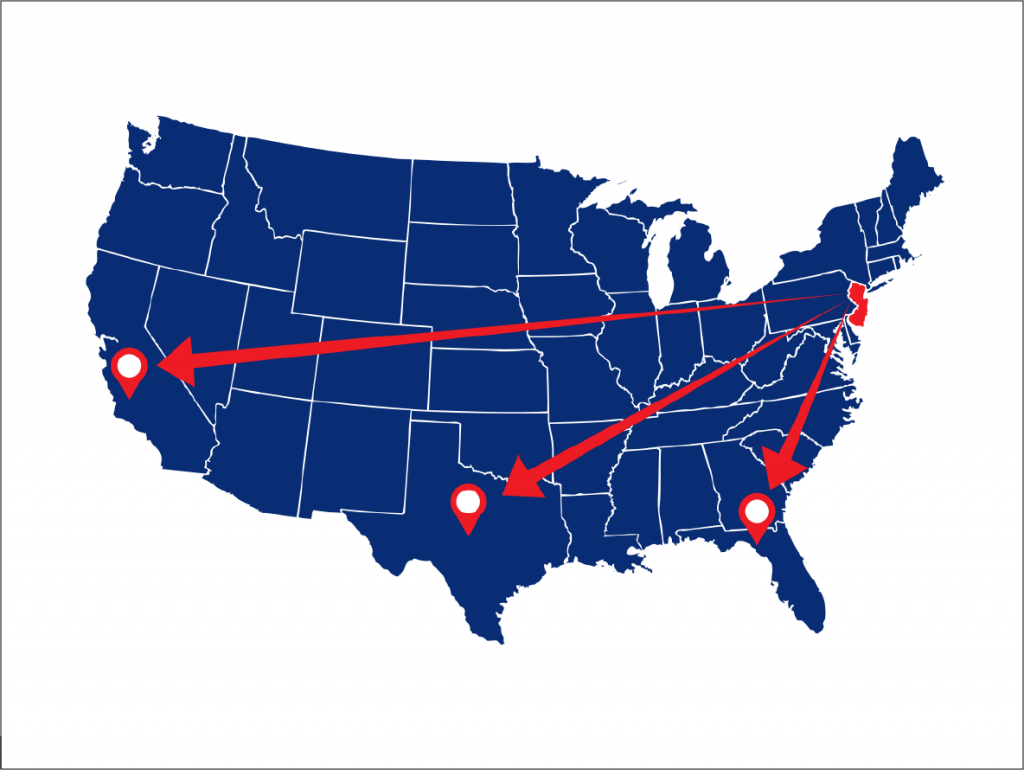
Types of warehouses and fulfillment centers in New Jersey
Dry warehouses
Dry warehouses are the most common type of facility in New Jersey. They are designed for storing non-perishable goods such as apparel, footwear, electronics, furniture, and general merchandise. These warehouses maintain ambient temperature and humidity, making them cost-effective and versatile for a wide range of industries.
Cold storage facilities
Cold storage warehouses play a critical role in the supply chain for perishable goods. Equipped with refrigeration and freezing systems, these facilities store products such as fresh produce, seafood, meat, dairy, beverages, and pharmaceuticals. Given New Jersey’s proximity to major ports, cold storage facilities are vital for supporting food imports and exports, ensuring products remain safe and compliant with international health standards.
Bonded warehouses
Bonded warehouses are government-authorized facilities where imported goods are stored until customs duties and taxes are paid. These warehouses allow businesses to defer duty payments, re-export goods without paying duties, and consolidate international shipments. For companies engaged in global trade and cross-border e-commerce, bonded warehouses in New Jersey provide a strategic solution near the Port of New York and New Jersey, one of the busiest gateways for imports in the U.S.
E-commerce fulfillment centers
As online retail continues to dominate, New Jersey has become a hub for specialized e-commerce fulfillment centers. These facilities are designed to handle high volumes of picking, packing, labeling, and shipping orders with precision and speed. Advanced software integration with online platforms such as Amazon, Shopify, Walmart, and eBay ensures seamless order processing, real-time inventory updates, and faster customer delivery.
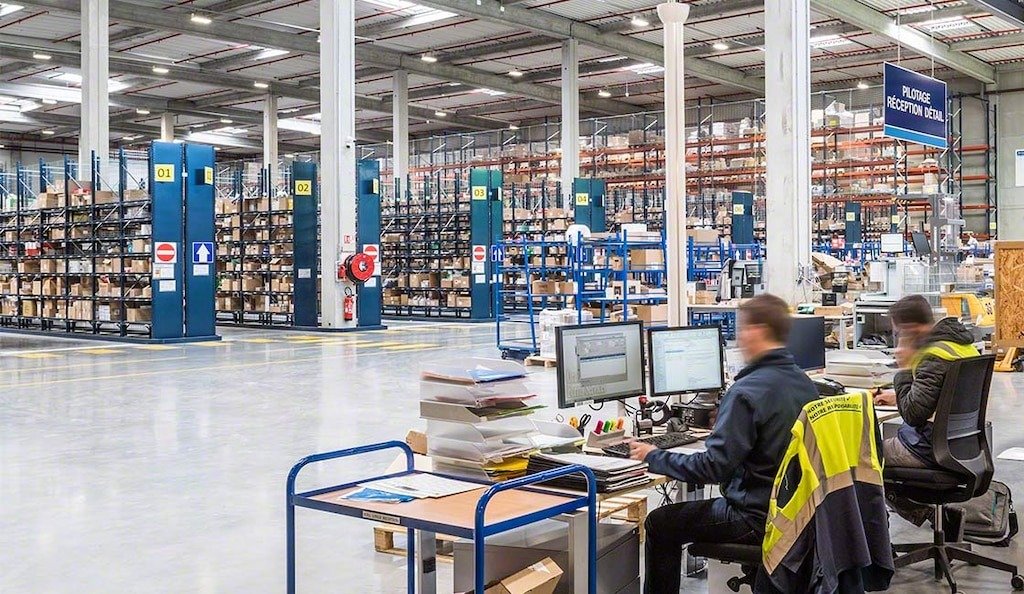
3PL (third-party logistics) fulfillment
3PL providers offer outsourced warehouse and fulfillment services to businesses of all sizes. In New Jersey, 3PLs manage inventory storage, order fulfillment, returns processing, and transportation solutions on behalf of multiple clients. Partnering with a 3PL allows companies to reduce capital investment, scale quickly, and focus on core business operations while relying on logistics experts to manage day-to-day supply chain tasks.
What is warehouse and fulfillment?
Before diving into why New Jersey stands out, let’s clarify the basics.
- Warehouse: A storage facility where businesses keep their inventory, raw materials, or finished goods.
- Fulfillment center: A facility that goes beyond storage to handle order processing, picking, packing, shipping, and returns management.
In today’s e-commerce-driven market, fulfillment centers are often integrated with warehouses to provide seamless supply chain solutions.
Key benefits of warehouse and fulfillment in New Jersey
Faster delivery times
Today’s customers expect same-day or next-day delivery, and businesses that cannot meet this standard risk losing market share. New Jersey’s geographic position gives companies a unique advantage: from a single warehouse, businesses can reach more than 100 million consumers on the East Coast within one to two days. Proximity to major metropolitan areas such as New York City, Philadelphia, Boston, and Washington, D.C. allows companies to cut lead times and provide faster fulfillment. For e-commerce businesses, this translates to higher customer satisfaction, reduced cart abandonment, and stronger brand loyalty.
Reduced shipping costs
By strategically storing inventory in New Jersey, businesses significantly reduce long-haul shipping costs. Instead of shipping products cross-country, goods can be distributed from local facilities, lowering fuel usage, labor expenses, and carrier surcharges like zone-based fees. Companies also save on last-mile delivery costs, which often account for the largest portion of logistics spending. With major highways, ports, and airports nearby, shipments from New Jersey flow more efficiently and economically across domestic and international markets.
Access to skilled workforce
New Jersey has long been a logistics powerhouse, supported by a highly skilled workforce. Employees in the state are experienced in warehouse management, e-commerce fulfillment, customs compliance, cold storage handling, and transportation operations. Many workers are already trained in using WMS platforms, barcode systems, robotics, and automation tools, making it easier for businesses to scale quickly without facing steep learning curves. This experienced labor pool helps companies maintain consistent accuracy, speed, and reliability in fulfillment.
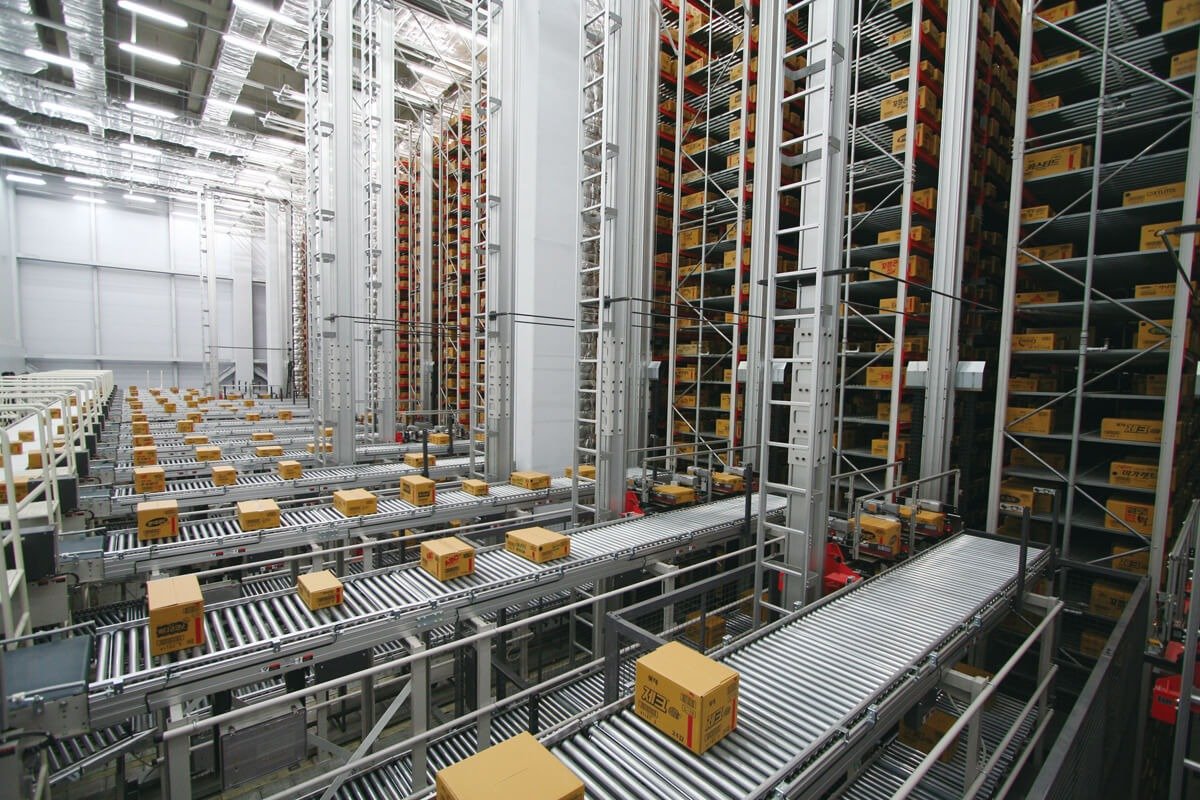
Scalable solutions for growth
New Jersey provides warehouse and fulfillment solutions suitable for businesses at every stage of growth. Startups can leverage shared fulfillment centers to minimize costs, while mid-sized companies may choose dedicated facilities for greater control. For global enterprises engaged in import/export, bonded warehouses enable cost-effective international trade. Additionally, the state’s logistics infrastructure supports seasonal scalability, allowing businesses to expand storage and labor capacity during peak demand periods such as holidays or promotional campaigns.
Integration with advanced technology
Many fulfillment providers in New Jersey are at the forefront of logistics technology adoption. Facilities frequently integrate advanced warehouse management systems (WMS), AI-driven forecasting tools, robotics, autonomous forklifts, and real-time shipment tracking platforms. These innovations enable businesses to streamline operations, increase accuracy, and improve inventory visibility. For e-commerce sellers, technology ensures orders are picked, packed, and shipped on time while providing end-to-end transparency for both the business and its customers.
Challenges of warehouse and fulfillment in New Jersey
Operating a warehouse or fulfillment center in New Jersey comes with undeniable benefits, but it is not without challenges. Businesses planning to establish logistics operations in the state should carefully consider these obstacles:
High real estate costs
The proximity of New Jersey to New York City, Philadelphia, and other densely populated areas makes it a prime location for logistics operations. However, this advantage also drives up commercial real estate prices. Leasing warehouse space near Newark, Jersey City, or close to the Port of New York and New Jersey can be significantly more expensive compared to facilities in other states. High rental costs often force businesses to balance between affordability and convenience. Companies must analyze whether being closer to customers outweighs the expense of operating in one of the most competitive real estate markets in the U.S.
Labor shortages
New Jersey’s logistics sector relies heavily on skilled workers for inventory management, forklift operations, last-mile delivery, and technology-driven tasks. Yet, the demand for these workers often outpaces supply, especially during peak seasons. Competition with New York City employers can also lead to higher wages. For smaller businesses, this can strain operational budgets. Some companies are investing in employee training programs and automation to reduce dependency on manual labor, but talent acquisition remains a challenge.
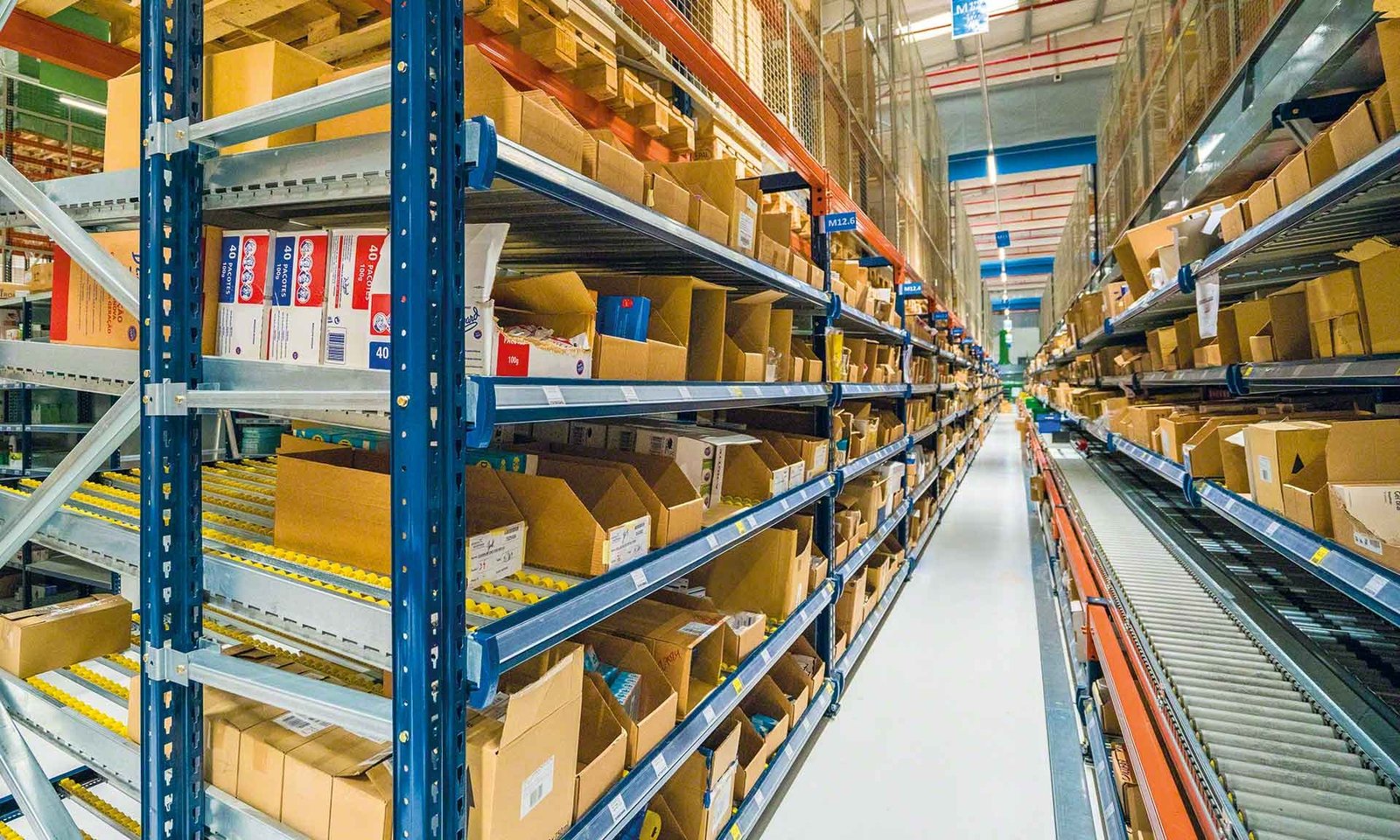
Traffic congestion
With major highways like I-95 and I-78 running through New Jersey, the state experiences heavy freight and commuter traffic daily. Urban congestion, particularly near Newark, Jersey City, and bridges connecting to New York, can delay deliveries. Even with a strategic warehouse location, last-mile delivery may face delays due to traffic bottlenecks. To minimize this, businesses often partner with regional carriers or use micro-fulfillment centers closer to dense customer areas.
Seasonal peaks
E-commerce and retail fulfillment in New Jersey face enormous pressure during holiday seasons, Black Friday, Cyber Monday, and back-to-school periods. Order volumes can multiply overnight, pushing warehouse staff, carriers, and inventory systems to the limit. Without proper forecasting and flexible operations, businesses risk late deliveries, stockouts, and poor customer experiences. Many companies adopt temporary labor, flexible storage contracts, and advanced demand forecasting tools to manage these surges effectively.
New Jersey is one of the most powerful logistics hubs in the United States. Its strategic location, advanced infrastructure, and wide range of fulfillment services make it a prime destination for businesses seeking growth. Whether you are a startup scaling your e-commerce brand or a global enterprise managing complex supply chains, choosing the right warehouse and fulfillment in New Jersey can unlock faster shipping, lower costs, and higher customer satisfaction. The key is to evaluate your industry needs, customer base, and long-term strategy before partnering with a fulfillment provider. With the right setup, New Jersey can be the gateway to seamless logistics success.


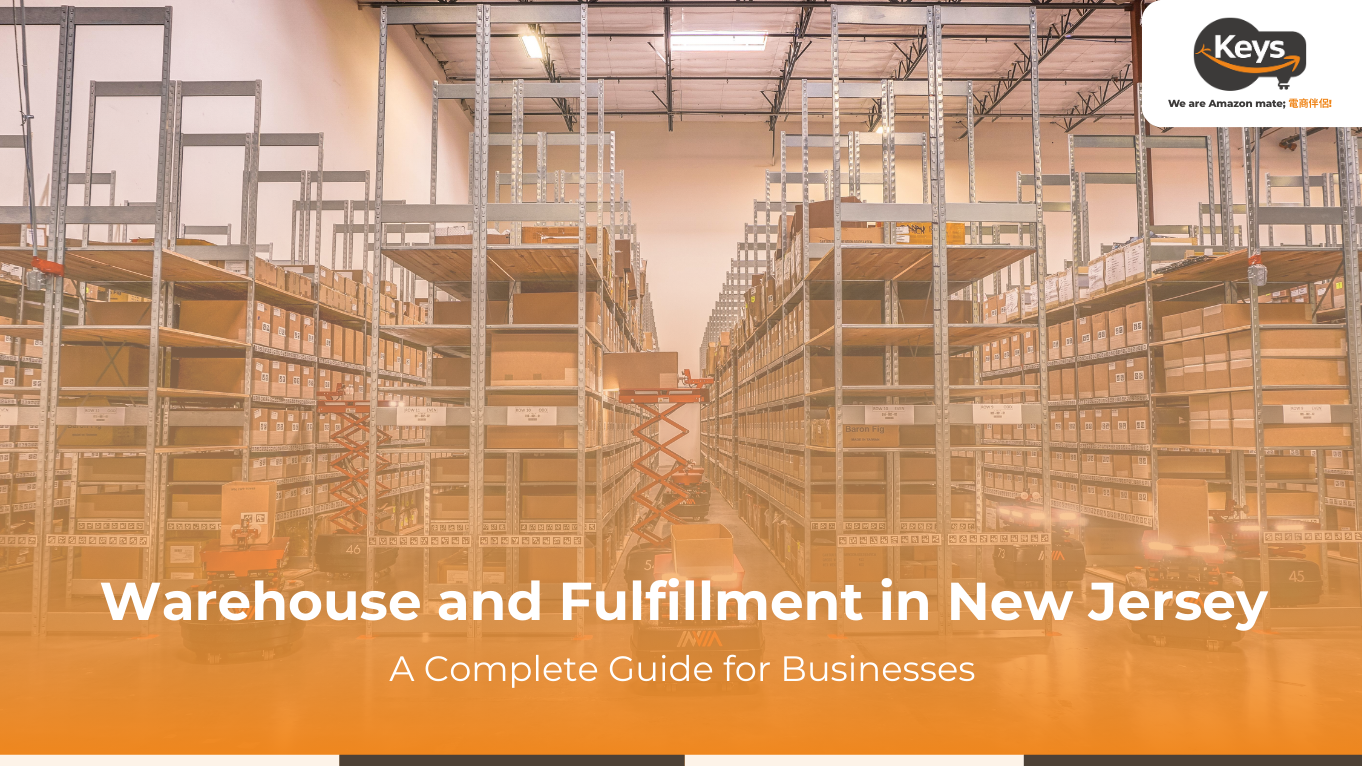









 Tiếng Việt
Tiếng Việt 中文 (中国)
中文 (中国)

